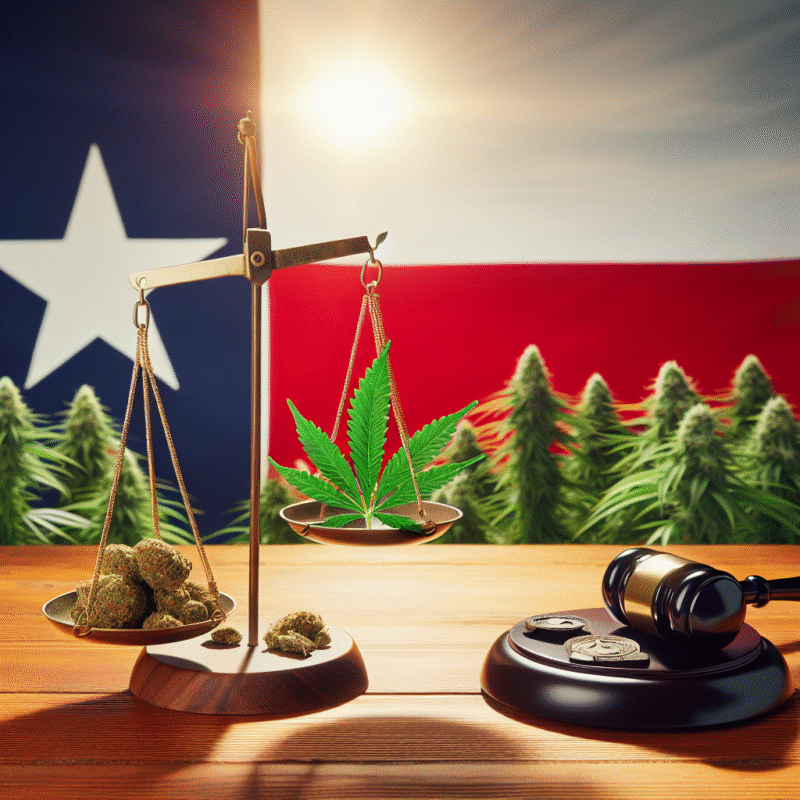Hemp Flower in Texas: Legal, Illegal, or Somewhere in Between?
In recent years, the conversation around hemp and cannabis has evolved significantly in the United States, and Texas is no exception. The legalization of hemp at the federal level through the 2018 Farm Bill opened the door for many states to explore their own policies regarding hemp cultivation and production. However, Texas has its own unique legal landscape when it comes to hemp flower. This article dives into the complexities of hemp flower legality in Texas, examining the current laws, the distinctions between hemp and marijuana, and the implications for consumers, growers, and businesses.
Understanding Hemp vs. Marijuana
To grasp the legal status of hemp flower in Texas, it’s essential to understand the difference between hemp and marijuana. Both plants belong to the Cannabis sativa species, but they are distinguished by their THC (tetrahydrocannabinol) content:
-
Hemp is defined legally as cannabis containing 0.3% or less THC by dry weight. It is primarily cultivated for its fibers, seeds, and cannabinoids like CBD (cannabidiol).
- Marijuana, on the other hand, contains more than 0.3% THC and is associated with psychoactive effects, making it subject to different regulations.
The Legal Framework in Texas
The 2018 Farm Bill
The 2018 Farm Bill legalized the cultivation of hemp at the federal level, essentially removing it from the list of controlled substances. This legislation paved the way for states to establish their own hemp regulations. Texas responded by enacting the Texas Hemp Farming Act in 2019, which allowed for the cultivation, processing, and sale of hemp products, including CBD oil.
Texas Hemp Farming Act
The Texas Hemp Farming Act established a regulatory framework for hemp production within the state. This law permits licensed farmers to grow hemp and sell products derived from hemp, including hemp-derived CBD. However, the Act also emphasizes the importance of maintaining low THC levels. Farmers must adhere to testing protocols to ensure that their crops contain no more than 0.3% THC.
Hemp Flower Status
While hemp flower (the non-psychoactive flower of the hemp plant) is legal to grow and sell in Texas, it exists in a gray area when viewed from a regulatory standpoint. The Texas Department of Agriculture (TDA) oversees hemp production, but the market for raw hemp flower is not as straightforward as other hemp products.
Challenges and Concerns
Law Enforcement Confusion
One of the significant challenges surrounding hemp flower in Texas is its resemblance to marijuana, leading to confusion among law enforcement officials. While hemp is legal, many law enforcement agencies are not equipped to easily differentiate between hemp and marijuana without lab testing. This confusion can lead to legal risks for consumers possessing hemp flower, as they may face scrutiny or harassment.
Availability and Regulation
Despite its legality, the market for hemp flower can be limited. Many retailers focus on more processed products like CBD oils, edibles, or topicals, leaving raw hemp flower less available. Furthermore, the regulatory framework regarding the sale of hemp flower can be inconsistent, leading to variability in access across different regions of Texas.
The Future of Hemp Flower in Texas
As the popularity of hemp products continues to rise, it is likely that the legal landscape surrounding hemp flower will evolve. Increased public awareness and demand for hemp flower could exert pressure on regulators to clarify existing laws and regulations.
Advocacy and Education
Consumer education and advocacy are critical in demystifying hemp flower. As more Texans become informed about the differences between hemp and marijuana, it could lead to greater acceptance and demand for hemp flower products. Additionally, local advocacy groups may push for clearer regulations, ensuring that consumers and businesses alike can navigate the legal complexities more easily.
Conclusion
Hemp flower in Texas exists in a complex legal framework that straddles the line between legality and ambiguity. While the 2018 Farm Bill and the Texas Hemp Farming Act have established a foundation for hemp cultivation and products, challenges remain regarding enforcement, consumer access, and education. As the industry continues to develop, it remains crucial for stakeholders—whether they are farmers, consumers, or businesses—to stay informed about the evolving legal landscape surrounding hemp flower in Texas. Whether viewed as a burgeoning opportunity or a legal quagmire, the future of hemp flower in Texas is sure to be an intriguing aspect of the state’s agricultural and economic evolution.

